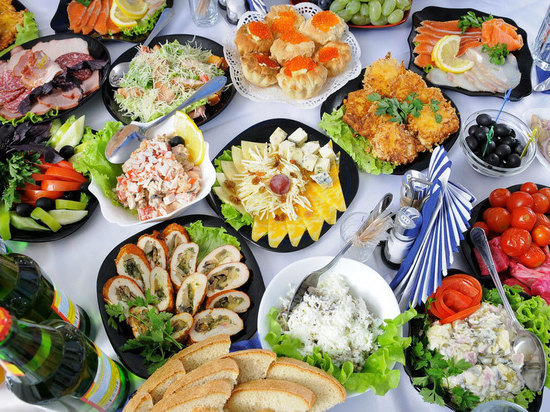How Russians’ eating habits have changed: potatoes are no longer fashionable
[ad_1]

With a labor victory today, one can congratulate not only our grain growers who have harvested a record wheat harvest, but also vegetable growers. True, their successes are more modest – 2.2 million tons. But this is a “plus” by 1.6% compared to last year. As they say, a trifle, but nice. And outside observers of the grocery market are also pleased that in food we “master” vegetable ingredients that are new to us.
At the fruit and vegetable exhibition of achievements that ended in Moscow, it was noted that a slight drop was recorded in the sown areas of open ground, by 1.2%. Such crops as cabbage, onion, carrots and beets “distinguished themselves”. Do you recognize? This is our borscht set.
However, vegetable growers themselves urge us not to sprinkle ashes on our heads as a sign of sadness. According to the director of the seedling complex, Irina Murashova, Russians are changing their consumption structure and diet. For example, potatoes, our traditional “second bread”, in recent years we have begun to consume as much as half as much.
But they “leaned on” other vegetables that were previously considered exotic. Leek is replacing onion. In the West, this is the most valuable vegetable crop, there are about 200 homemade recipes for its preparation. However, he is also becoming popular in Russia. In the store, a kilogram of leek costs 350 rubles, more expensive than pork.
We actively use celery. We tried salads. Not those that housewives traditionally cut from cucumbers and tomatoes, pouring abundantly with mayonnaise. We are talking about the leaves of real salads – low-calorie, fragrant and tasty. So, we see romaine not only in hamburgers, but also on our dining table. And also in the arsenal of arugula, spinach, iceberg …
As they say, a holy place is never empty, we are drifting towards European values in food. There is a certain substitution of products from the consumer basket.
Here, we began to produce (and, accordingly, consume) more of these same vegetables, which appear in the statistical reporting in the column “other vegetables”.
Life itself outside the window pushes us to such a transformation. Where did we store our winter stocks of vegetables? In garages (who had them), in the pantry or on the loggia. And by spring, a good half of the rotten root crops were taken to a landfill.
Today, not everyone is associated with bags and nets. Why, you ask. Supermarkets have everything, at any time you can buy at least a couple of carrots, at least half a head of cabbage – for the same borscht set.
A Krasnodar farmer, a Korean by nationality, in frustration complained to the agrarian commission from the Ministry of Agriculture about Russian women. Say, lazy steel. For more than a decade, he has been growing white cabbage on his farm – early and late varieties. Always went “with a bang.” And today housewives do not want to cut and plan, as in the old days, cabbage for borscht, salads or pickling. Switched to Chinese cabbage. “We in Asia don’t eat it raw. And you have it raw even in restaurants.
In general, our consumption of vegetables has exceeded 100 kilograms per capita, while the medical norm is 120-140 kilograms.
What prevents us from conquering this frontier?
Lack of forecasting for open field vegetables. For this reason, we get it, sometimes thick, sometimes empty. A year ago, cabbage from the field cost about 40 rubles per kilogram, and they planted little of it, and the harvest turned out to be unsightly. This year, all the farmers of the country have planted it in the hope that it will cost under 40 rubles. And she is not from the field, but in retail – 9-11 rubles. Guys burned out.
It comes to the point, agricultural experts say, that retail chains do not give producers applications for the volumes they need. How much to plant this or that? 500 hectares or 1500? And it turns out – sometimes shortage, then packing. “Retail chains cannot even tentatively or do not want to give figures.”
Another problem is related to the storage of the crop. Modern high-tech storage facilities, with climate control, can only take 7 million tons – out of 2.2 million collected this year. Here, these vegetables will lie quietly until next autumn, when the harvesting of the new crop begins.
But this is only the third part. And the remaining two-thirds in early spring will feed the birds in the garbage dumps. For this reason, by spring, vegetables begin to rise sharply in price and we are importing from Azerbaijan, Turkey, Israel or Egypt.
But why spring? Already by the New Year, the price tags for vegetables will be updated. Of course, we are all interested in the percentage of the New Year’s rise in prices. Farmers do not hide the fact that it will certainly happen, manufacturers will throw 10 percent on their goods – how could it be without it?
But the final prices are set not by the manufacturer, but by trade. Don’t be surprised if something jumps by 50%. The state gives priority not to the peasants, but to trade.
[ad_2]
Source link






